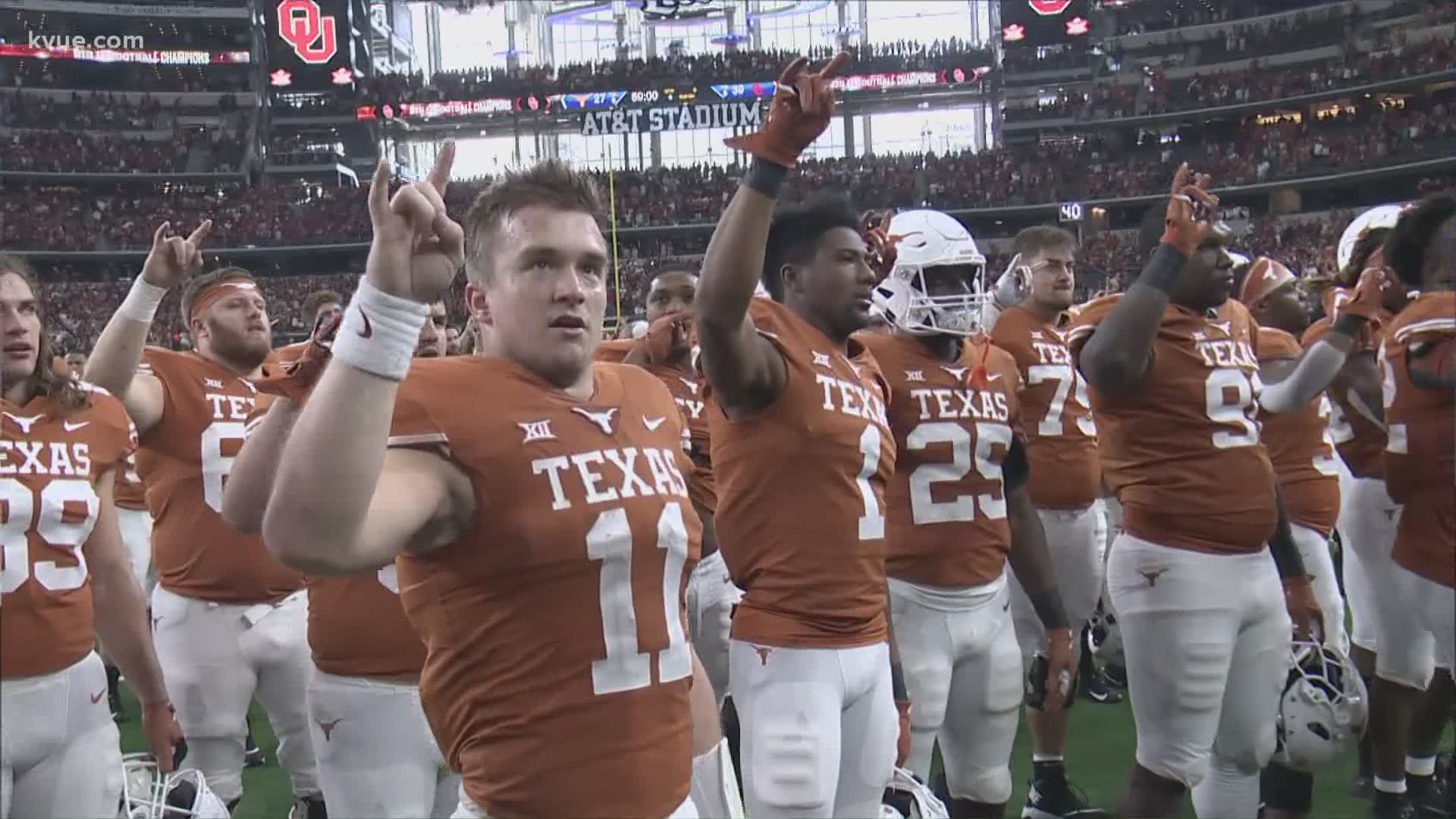

The bluest eyes in Texas Are haunting me tonight. I can still see the wind in her golden hair. And in the rear-view mirror I watched it go.

There's a whole generation of students and minority students that are equally and more mad than we are and don't want to enter a space that predetermined their opinions don’t matter.The lonesome Texas sun was setting low. “I think this is the tip of the iceberg honestly,” UT-Austin senior Kendall Walker, a student protester, told the Texas Tribune. “This is the beginning of it and people resisting that decision and not accepting a committee of people deem the song isn’t racist. But UT-Austin President Jay Hartzell has repeatedly affirmed that the university will keep the song. Members of the Texas Black Legislative Caucus and state NAACP chapters have condemned the song. The school formed a committee to study the song’s origins. The school said that members of the Longhorn marching band are required to play the song or could join a newly created separate band where it won’t be required.Įarlier this year, the Texas Tribune reported that dozens of students at the University of Texas who gave campus tours to prospective students refused to work one week over a dispute about a plaque with “The Eyes of Texas” lyrics hanging in the Admissions Welcome Center.

Of course, that evoked a strong reaction from white alumni and donors similar to what Colin Kaepernick faced after he took a knee during the national anthem.

The Associated Press reported that when the college football season began last fall, the Longhorn Band refused to play “The Eyes of Texas.” And many members of the football team didn’t stay on the field for the song after some home games in 2020. The song caught on with students who started singing it during football games. The minstrel show regularly featured white students performing in blackface. The song, which used the tune of “I’ve Been Working on the Railroad,” was debuted at the annual campus minstrel show in 1903 attended by UT President Prather. Gregg reportedly once told his soldiers, “The eyes of General Lee are upon you!” But, the report notes, similar phrases had been used long before the Civil War, including in the Book of Job (“For His eyes are on the ways of a man.”) and by George Washington (“The eyes of all our countrymen are now upon us”).Ī student wrote a poem that was the basis for the lyrics. Instead the report found that Prather, who became UT’s president in 1899, more likely found his inspiration from Confederate brigadier general John Gregg of Texas. But a recent report to study the song’s origins could not find any primary sources that show that Lee ever used the phrase. For more than 80 years, that story was accepted as fact. Taylor claimed that Lee often told students, “The eyes of the South are upon you,” as a way of reminding them to work hard and uphold Southern traditions. Lee often told students when he was the president of Washington College, in Virginia, where Prather studied law in the late 1860s. Taylor, the first dean of the College of Engineering at Texas, alleged that the phrase, “the eyes of Texas are upon you,” was a reference to something Robert E. To trace the history of the tune, you must go back to the turn of the twentieth century, when William Prather was president of the university. They also called for officials to replace “The Eyes of Texas “with an new song without racial undertones.” The article came after more than two dozen Texas student athletes - including football, basketball and track stars - posted a letter on social media - which demanded that campus buildings named for men who supported the Confederacy or segregation be renamed. In 2020, during the protests over George Floyd’s murder, Texas Monthly had a story headlined: “The Damning History Behind UT’s ‘The Eyes of Texas’ Song.” The song itself has long been controversial because of questions about its origin and whether it reflects racism and a “Lost Cause” ideology.


 0 kommentar(er)
0 kommentar(er)
